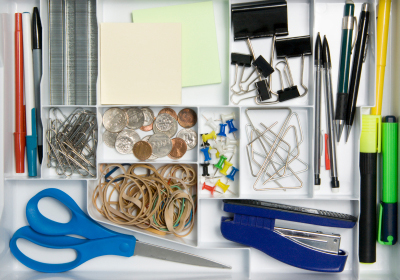
Profit and prosper with the best of Kiplinger's advice on investing, taxes, retirement, personal finance and much more. Delivered daily. Enter your email in the box and click Sign Me Up.
You are now subscribed
Your newsletter sign-up was successful
Want to add more newsletters?

Delivered daily
Kiplinger Today
Profit and prosper with the best of Kiplinger's advice on investing, taxes, retirement, personal finance and much more delivered daily. Smart money moves start here.

Sent five days a week
Kiplinger A Step Ahead
Get practical help to make better financial decisions in your everyday life, from spending to savings on top deals.

Delivered daily
Kiplinger Closing Bell
Get today's biggest financial and investing headlines delivered to your inbox every day the U.S. stock market is open.

Sent twice a week
Kiplinger Adviser Intel
Financial pros across the country share best practices and fresh tactics to preserve and grow your wealth.

Delivered weekly
Kiplinger Tax Tips
Trim your federal and state tax bills with practical tax-planning and tax-cutting strategies.

Sent twice a week
Kiplinger Retirement Tips
Your twice-a-week guide to planning and enjoying a financially secure and richly rewarding retirement

Sent bimonthly.
Kiplinger Adviser Angle
Insights for advisers, wealth managers and other financial professionals.

Sent twice a week
Kiplinger Investing Weekly
Your twice-a-week roundup of promising stocks, funds, companies and industries you should consider, ones you should avoid, and why.

Sent weekly for six weeks
Kiplinger Invest for Retirement
Your step-by-step six-part series on how to invest for retirement, from devising a successful strategy to exactly which investments to choose.
Is your home feeling a little tight? Want to break free from your clutter? You can free up space in your drawers, closet, basement or garage and earn extra cash -- or a tax break. Take a look at this slide show and see how to clean house and make bank while doing it. The navigation begins to your right.

TECH: SELL IT
Tech devices need special handling because they contain landfill-unfriendly materials. Gazelle.com buys computers, cell phones, GPS devices and other electronics. You’ll receive a postage-paid box in which to ship your item, and payment arrives soon after via check or PayPal.
Before you sell (or donate or recycle), clear your devices of personal information. Take advantage of free downloadable programs, such as Eraser (available at www.cnet.com), to wipe clean your computer beforehand.

TECH: DONATE IT
Your used tech gadgets can get a second life. At Cristina.org, you can donate your computer to the National Cristina Foundation. It places your donation with a school or nonprofit that picks up your equipment.
You can donate cell phones to CallToProtect.org, which will sell the phone and donate the proceeds to groups that combat domestic violence.


PAPER: FILE IT
Create a system to sort, label and store the papers you need, and ditch the rest. To simplify future tax filing, keep purchase and year-end statements for stocks and mutual funds for at least three years after you sell the investment, and hang on to home-purchase and improvement info for six years after you sell your house.
Keep records of nondeductible IRA contributions until you withdraw the money.

PAPER: TRASH IT
Although it’s best to keep tax returns forever, you can ditch supporting tax documents after three years–that’s how long the IRS has to initiate an audit (six years if you’re self-employed).
Shred anything with account and personal information. Signing up for online banking can tame the paper tiger, but keep backup electronic records.

STUFF: SELL IT
Your "stuff" can fetch a pretty penny. You can sell items on eBay or Craigslist. To dispense with the hassle of dealing with customers, hire a group such as iSold It (www.877isoldit.com) to handle your sales (it has a $75 minimum and charges a commission of 33% to 40%). Or devote a Saturday to an old-fashioned yard sale.
You can increase the appeal by joining forces with neighbors. Or peddle your castoffs at a consignment shop.


TECH & STUFF: DONATE IT
The Internet has made it easier to clean house of everything from clothing to a couch. Call the Salvation Army (800-728-7825) for a pickup, or go to www.satruck.com to find the nearest drop-off site.
You can mail smaller items to charities that will give them away. For books, visit BooksFirst.org; for shoes, Soles4Souls.org; for sports equipment, SportsGift.org.

Profit and prosper with the best of Kiplinger's advice on investing, taxes, retirement, personal finance and much more. Delivered daily. Enter your email in the box and click Sign Me Up.
-
 Dow Leads in Mixed Session on Amgen Earnings: Stock Market Today
Dow Leads in Mixed Session on Amgen Earnings: Stock Market TodayThe rest of Wall Street struggled as Advanced Micro Devices earnings caused a chip-stock sell-off.
-
 How to Watch the 2026 Winter Olympics Without Overpaying
How to Watch the 2026 Winter Olympics Without OverpayingHere’s how to stream the 2026 Winter Olympics live, including low-cost viewing options, Peacock access and ways to catch your favorite athletes and events from anywhere.
-
 Here’s How to Stream the Super Bowl for Less
Here’s How to Stream the Super Bowl for LessWe'll show you the least expensive ways to stream football's biggest event.
-
 12 Great Places to Retire in the Midwest
12 Great Places to Retire in the MidwestPlaces to live Here are our retirement picks in the 12 midwestern states.
-
 15 Cheapest Small Towns to Live In
15 Cheapest Small Towns to Live InThe cheapest small towns might not be for everyone, but their charms can make them the best places to live for plenty of folks.
-
 Best Cold Weather Places to Retire
Best Cold Weather Places to RetirePlaces to live Some like it hot; others, not so much. Here are the 12 best places to retire if you can't stand the heat.
-
 The 24 Cheapest Places To Retire in the US
The 24 Cheapest Places To Retire in the USWhen you're trying to balance a fixed income with an enjoyable retirement, the cost of living is a crucial factor to consider. Is your city the best?
-
 The Six Best Places to Retire in New England
The Six Best Places to Retire in New Englandplaces to live Thinking about a move to New England for retirement? Here are the best places to land for quality of life, affordability and other criteria.
-
 Best Cold Weather Places to Retire
Best Cold Weather Places to Retireplaces to live Some like it hot; others not so much. Here are the 12 best places to retire if you can't stand the heat.
-
 15 Ways to Prepare Your Home for Winter
15 Ways to Prepare Your Home for Winterhome There are many ways to prepare your home for winter, which will help keep you safe and warm and save on housing and utility costs.
-
 5 Great Places to Buy a Vacation Home
5 Great Places to Buy a Vacation HomeWant a vacation home for remote work or a fun getaway? Here are locations with median prices under $500K.
